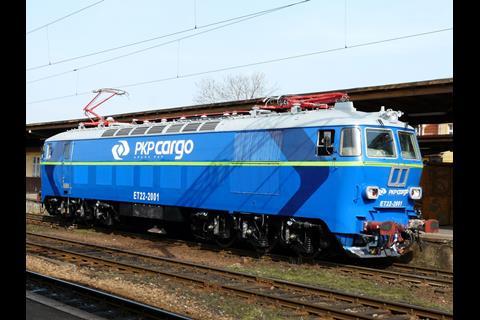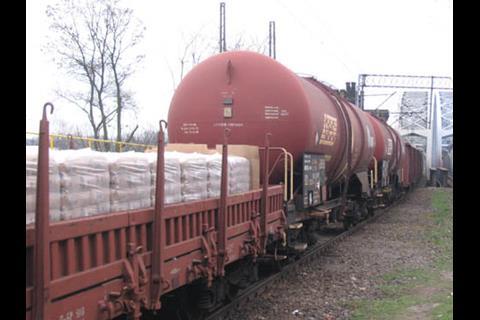POLAND: National freight operator PKP Cargo has announced details of its forthcoming floatation. An initial public offering on the Warszawa Stock Exchange is planned, with book building to end on October 22 and trading to start on October 31.
An IPO has been chosen to enable the state to retain a majority stake of 50% plus one share, with 21 669 007 shares to be sold at a price of between 50 and 74 złoty. Employees have been allocated 10% of the total number of shares and individual investors 15% to 20%, with the remainder to be sold to institutional buyers. The European Bank for Reconstruction & Development is to take a stake of up to 7·5%.
The money raised will be used to repay part of the debts of railway holding company PKP SA. Around 35% to 50% of future profit would be used to pay dividends.
Goldman Sachs Group, Morgan Stanley & Co and PKO Bank Polski are joint global co-ordinators and joint bookrunners, with Ipopema Securities, Raiffeisen Centrobank and UniCredit joint bookrunners and Dom Inwestycyjny Investors and Mercurius Dom Maklerski acting as domestic co-bookrunners.
PKP Cargo is the biggest rail freight operator in Poland, with a 60% market share. Traffic in 2012 totalled 116·7 million tonnes and 29·6 billion tonne-km. It is the second biggest rail freight operator in the EU after DB Schenker. As of December 31 2012 it had 2 453 locomotives and 64 109 wagons.
EBRD said the sale would be the 'first example of a partial privatisation by means of an IPO to be carried out in the rail sector in the region', and may encourage other governments to privatise their freight businesses. It would make private ownership more widespread in the Polish rail sector, and may pave the way for other PKP SA subsidiaries to be floated.
Speaking at a conference last month, PKP Cargo CEO Łukasz Boroń said the sale would be one of the largest privatisations in Poland. 'We show the way', he said. 'Some companies similar to PKP Cargo are listed in Russia or the USA, but those are different markets. PKP Cargo will be the first railway carrier of this kind listed on the stock market.'



















